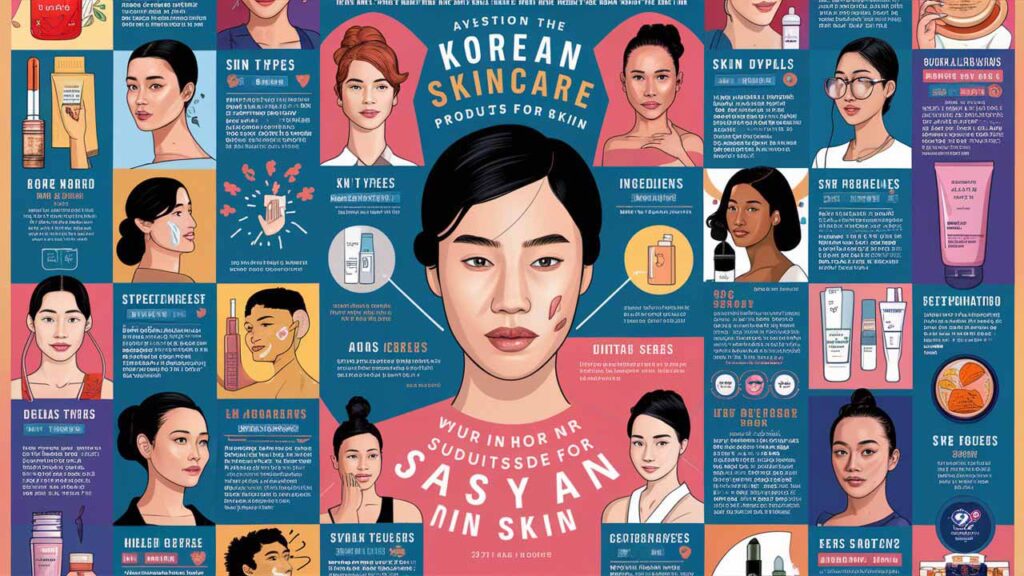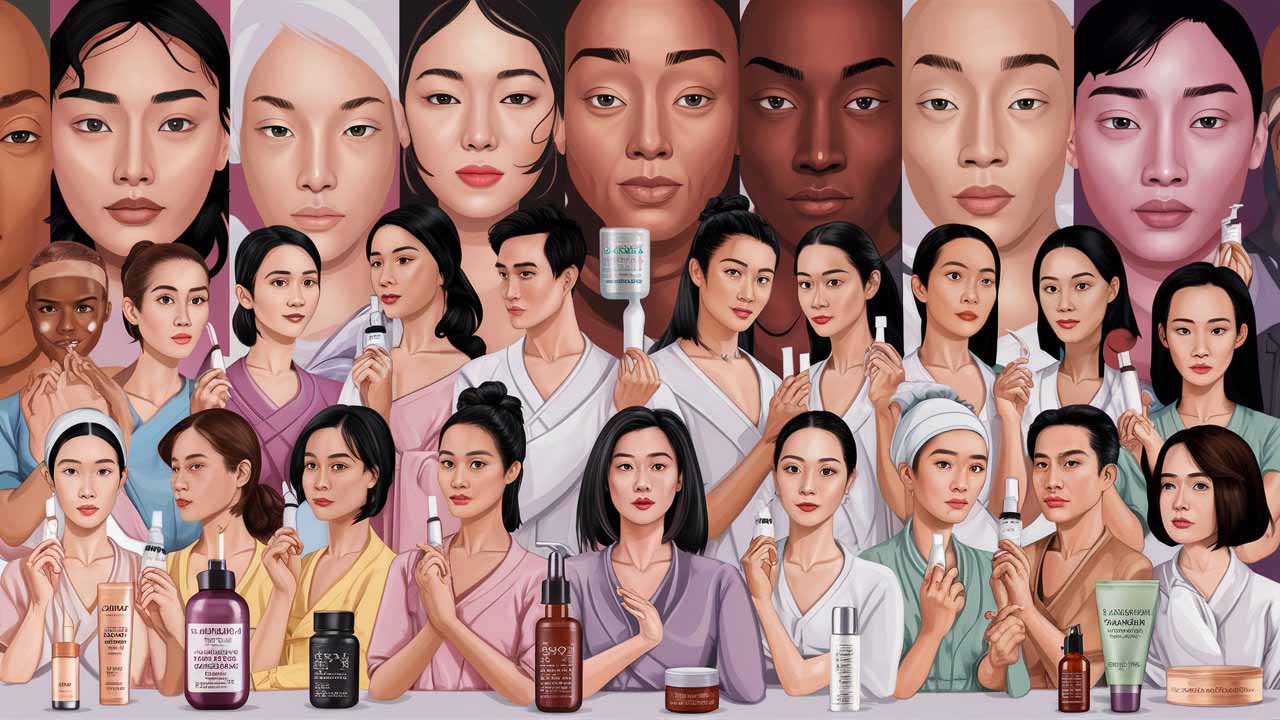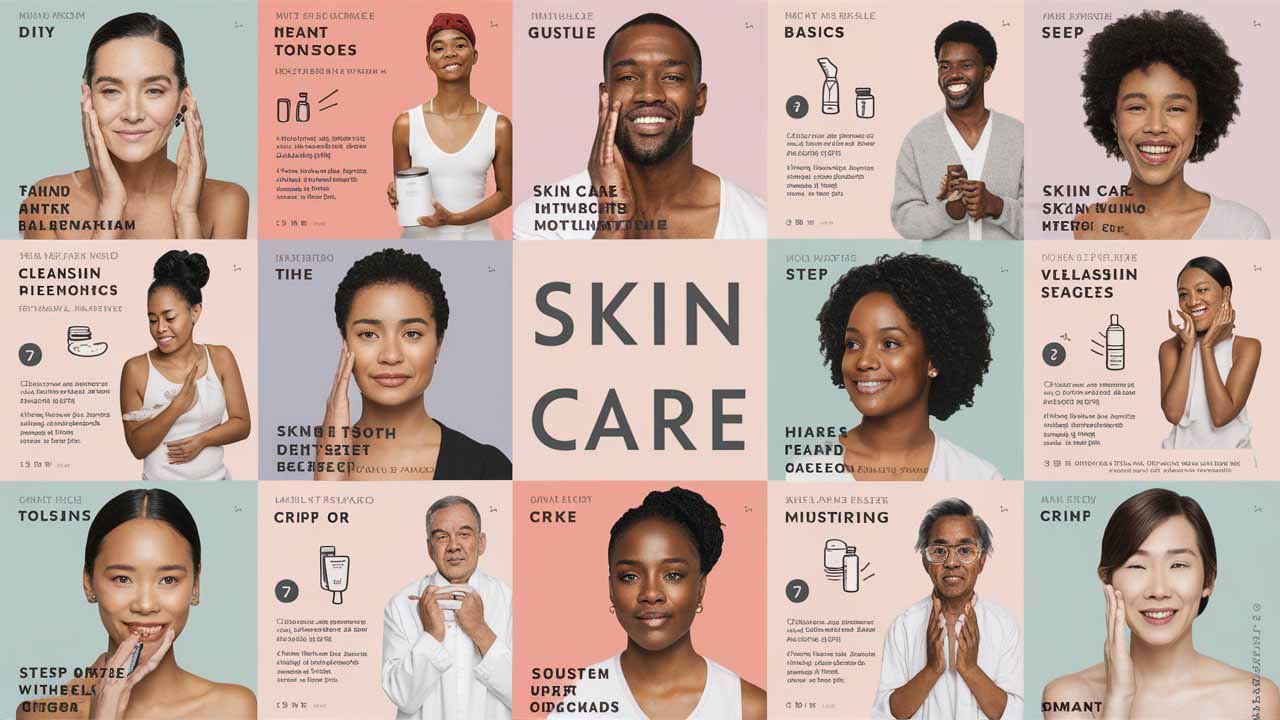As a skincare expert with years of experience, I have often been asked whether Korean skincare products are better suited for Asian skin. In this analysis, we will delve into the unique characteristics of Asian skin, such as higher melanin levels and increased sensitivity to environmental factors, and how Korean skincare products are formulated to address these specific needs.
Understanding the Unique Characteristics of Asian Skin
Asian skin tends to have higher melanin levels, which can make it more prone to hyperpigmentation and dark spots. Additionally, Asian skin often has a thinner stratum corneum, making it more sensitive to environmental factors such as pollution and UV rays. These unique characteristics necessitate a tailored approach to skincare.
Key Ingredients in Korean Skincare Products
Korean skincare products are renowned for their innovative and effective ingredients. Some of the key ingredients that cater to the needs of Asian skin include:
Snail Mucin
Snail mucin is a powerhouse ingredient known for its ability to hydrate, repair, and rejuvenate the skin. It is particularly beneficial for Asian skin, which can be more prone to sensitivity and irritation.
Ginseng
Ginseng is a traditional Korean herb that has been used for centuries for its anti-aging properties. It helps to improve skin elasticity, reduce wrinkles, and brighten the complexion.
Centella Asiatica
Centella Asiatica, also known as “cica,” is a soothing and healing ingredient that helps to calm inflammation and promote skin regeneration. It is ideal for sensitive Asian skin that is prone to irritation.
The Korean Skincare Philosophy
The Korean skincare philosophy emphasizes layering lightweight products, the importance of sun protection, and a focus on hydration and gentle exfoliation. This approach is particularly beneficial for Asian skin, which requires a delicate balance of moisture and protection.
Layering Lightweight Products
Instead of using heavy creams, the Korean skincare routine involves layering multiple lightweight products such as essences, serums, and ampoules. This allows for better absorption and provides the skin with a steady supply of nutrients and hydration.
The Importance of Sun Protection
Given the higher melanin levels in Asian skin, sun protection is crucial to prevent hyperpigmentation and dark spots. Korean skincare products often include broad-spectrum sunscreens that offer both UVA and UVB protection.
Focus on Hydration and Gentle Exfoliation
Hydration is key to maintaining healthy, glowing skin. Korean skincare products often contain humectants like hyaluronic acid to draw moisture into the skin. Gentle exfoliation with products containing AHAs or BHAs helps to remove dead skin cells without causing irritation.
Actionable Tips for Incorporating Korean Skincare Products

For those looking to incorporate Korean skincare products into their routine, here are some actionable tips:
1. Start with a Patch Test: Before fully integrating any new product, perform a patch test to ensure it does not cause irritation.
2. Follow the 10-Step Korean Skincare Routine: This involves steps like double cleansing, applying toner, essence, serum, and moisturizer, among others.
3. Choose Products Based on Your Skin Type: Whether you have oily, dry, combination, or sensitive skin, select products that are formulated to address your specific concerns.
Success Stories and Research
Many individuals have transitioned to Korean skincare and seen significant improvements in their skin. For example, Jane, a 30-year-old with hyperpigmentation, noticed a substantial reduction in dark spots after incorporating products with snail mucin and ginseng into her routine.
Research also supports the efficacy of these ingredients. A study published in the Journal of Dermatological Treatment found that Centella Asiatica extract significantly improved skin hydration and reduced inflammation.
Conclusion
In conclusion, Korean skincare products are well-suited to address the unique needs of Asian skin. With their focus on innovative ingredients, layering lightweight products, and emphasizing hydration and sun protection, they offer a comprehensive approach to skincare. By following the tips and guidelines provided, readers can make informed decisions and achieve healthier, more radiant skin.
Read More: Achieve Glowing Skin Science-Backed Korean Skincare Routine












One thought on “Are Korean Skincare Products Better Suited for Asian Skin? An In-Depth Analysis”